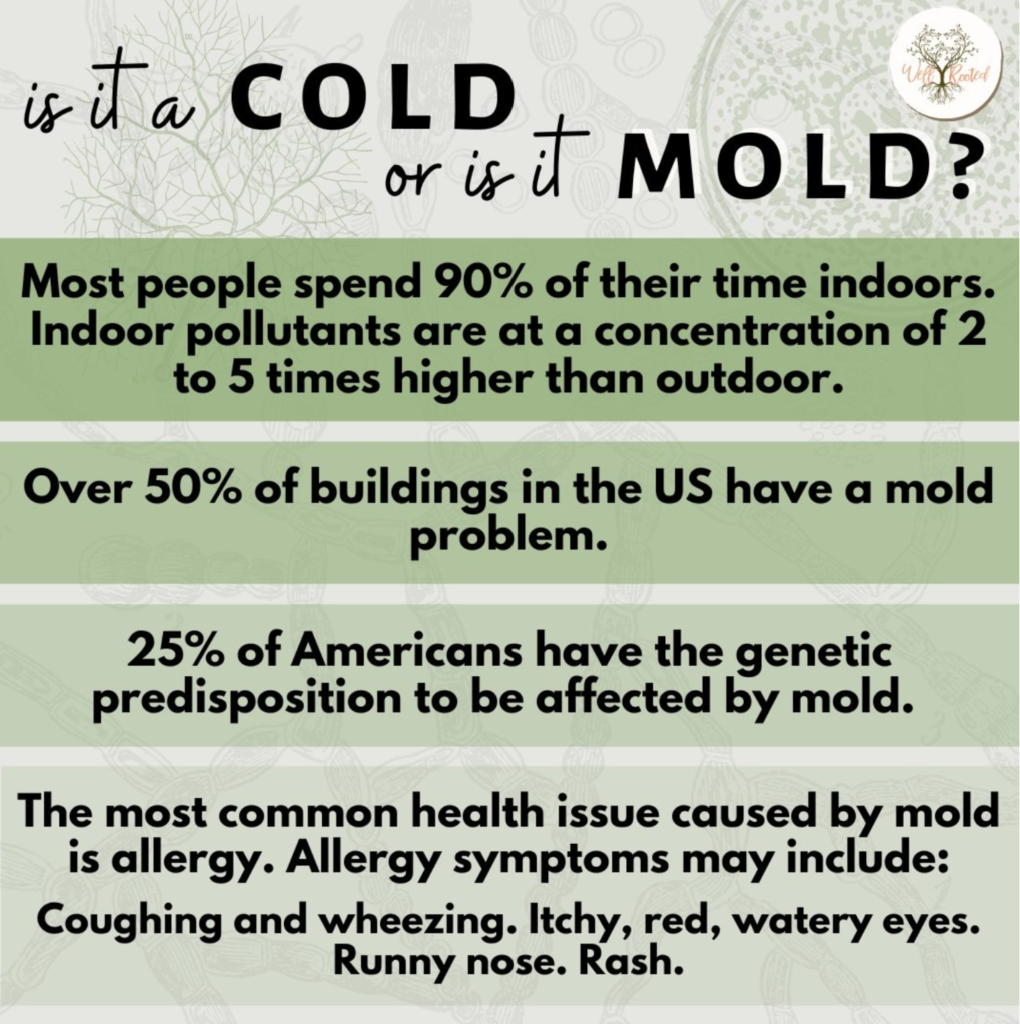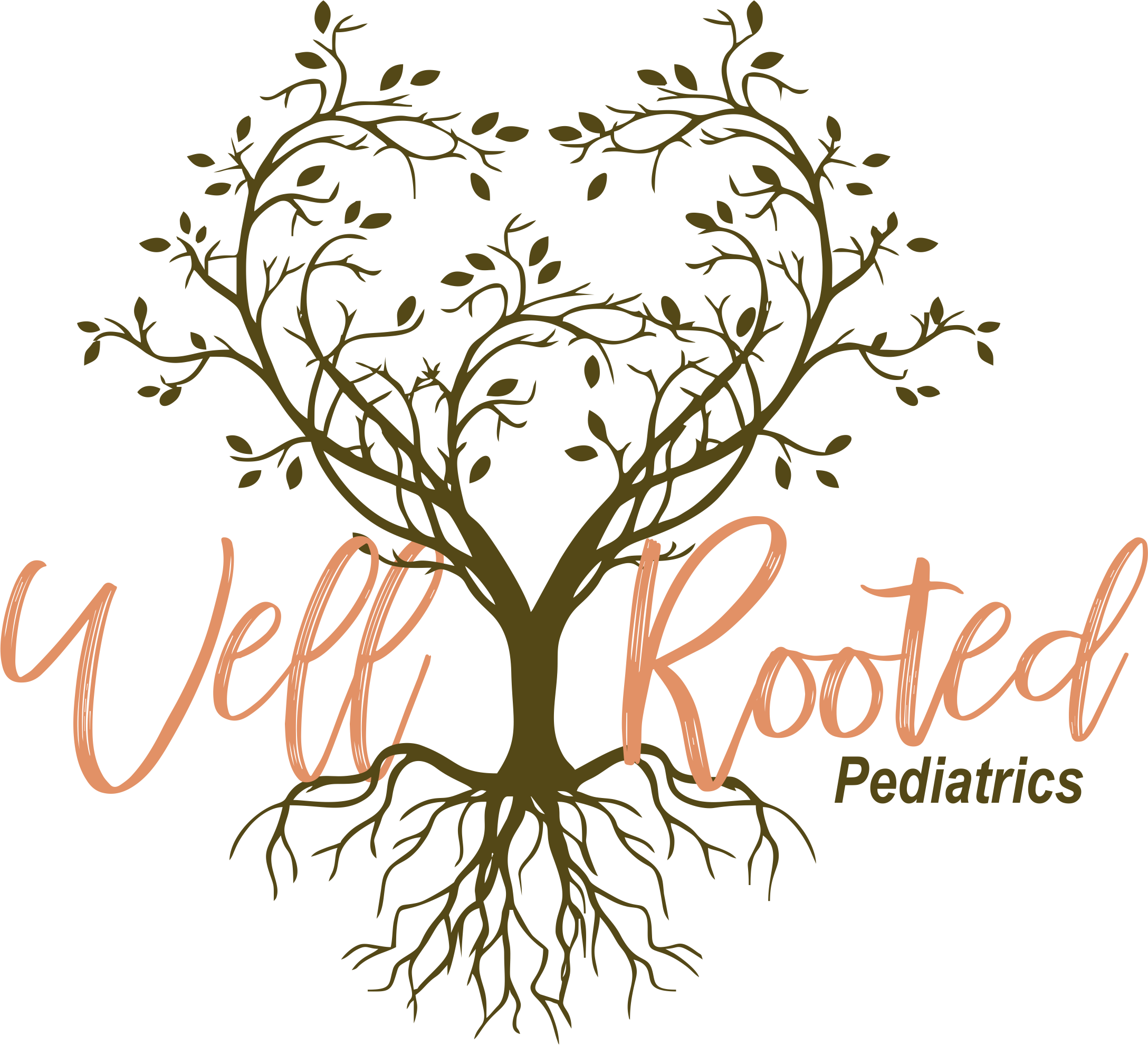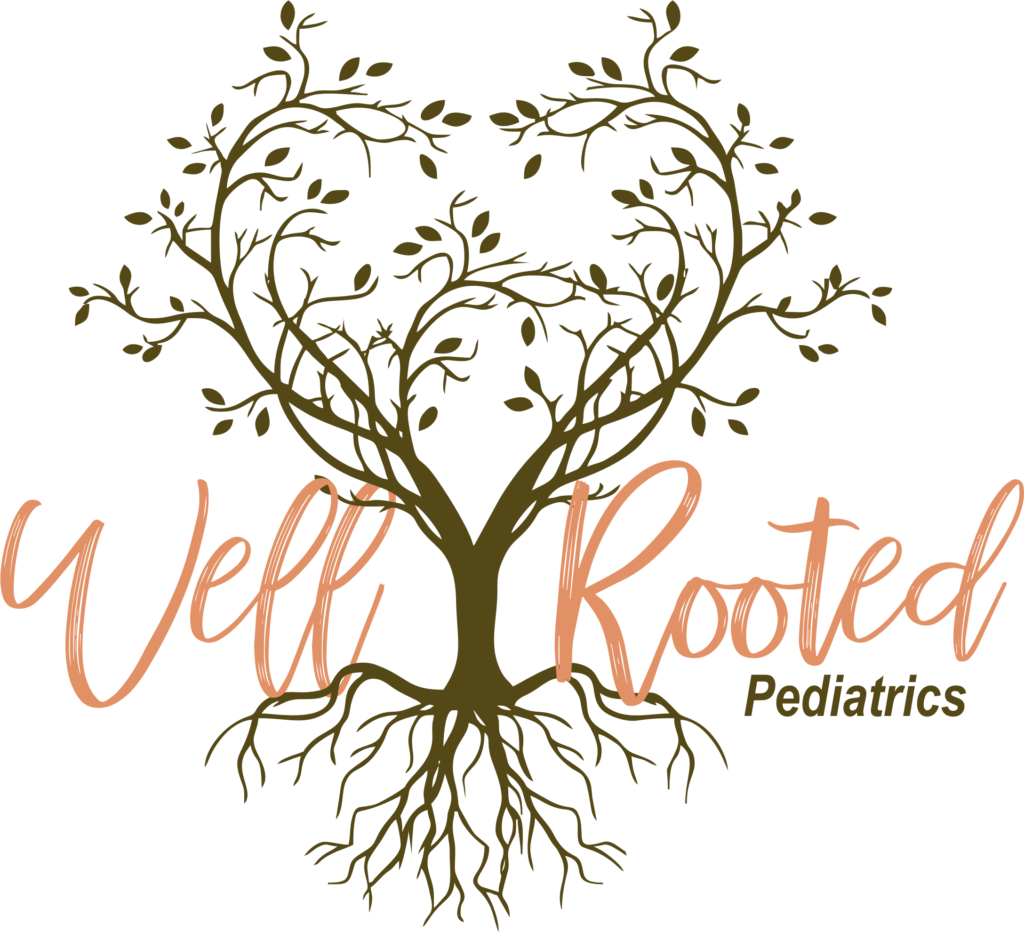Is it a cold or is it mold?
Colder weather = more time indoors, which means increased exposure to mold. 🤧
Mold is a common yet often overlooked health hazard that can lurk in homes, schools, and workplaces.
Mold reproduces by releasing spores into the air, which can be inhaled or come into contact with the skin. While not all molds are harmful, certain types produce toxic substances known as mycotoxins. While it may seem harmless at first glance, exposure to mold can have a range of negative effects on human health, from minor irritations to severe chronic illnesses.
🍄 Mold is a fungi and fungi can grow pretty much anywhere, in even the most unwelcoming climates. Many of us know molds can grow indoors as well as outdoors, and while mold is an important part of the natural ecosystem in our backyards, it can be harmful to our health and our homes when it makes its way inside.
How Does Exposure Occur?
Inhalation: Breathing in air contaminated with mold spores.
Skin Contact: Touching surfaces where mold has grown.
Ingestion: Consuming food or water contaminated with mold.
Common places where mold can grow include bathrooms, basements, kitchens, and any area where there is water leakage or poor ventilation.
One half to one third of all structures may contain mold.
Mold likes to hang out in the dark, damp corners of our homes and office buildings. Think basements, crawl spaces, bathrooms, attics, and around windows. It can also attach itself to almost any surface: fabrics, carpeting, wood, wallpaper, insulation, and even dust.
Mold in your home may not always make you sick and you may not know its even there, but for some people it can cause severe allergies or illness.
Health Effects of Mold Exposure
Respiratory Issues : One of the most immediate effects of mold exposure is on the respiratory system. Symptoms can range from nasal stuffiness and throat irritation to more severe conditions like asthma and chronic obstructive pulmonary disease (COPD).
Allergic Reactions: Mold can trigger allergic reactions, leading to symptoms like sneezing, red eyes, and skin rashes. In more severe cases, it can cause allergic fungal sinusitis and hypersensitivity pneumonitis.
Immune System Suppression: Mycotoxins can suppress the immune system, making you more susceptible to infections and less capable of fighting off diseases.
Neurological Effects: Exposure to toxic molds can affect the nervous system, leading to symptoms like headaches, dizziness, and in extreme cases, memory loss and cognitive decline.
Hormonal Imbalance: Mycotoxins can disrupt the endocrine system, leading to hormonal imbalances that can contribute to a variety of health issues, including thyroid disorders and adrenal fatigue.
Chronic Illness: Long-term exposure to mold can contribute to the development of chronic illnesses like chronic fatigue syndrome, fibromyalgia, and even certain types of cancer.
Mold exposure is not a health emergency for most people, and allergy symptoms are the most common health issue caused by it, so if you find yourself with lingering cold symptoms when spending more time indoors you may actually be having an allergic reaction to mold!
People with asthma or individuals with other breathing difficulties are more susceptible to more severe reactions. Prolonged or extreme exposure may cause lung infections or even mold poisoning which may include symptoms like:
🔸body aches and pains
🔸changes in mood
🔸headaches
🔸memory loss
🔸nosebleeds
If you have lingering symptoms and have reason to suspect mold, talk to your healthcare provider. There are tests that can be done to determine whether you’re experiencing mold toxicity or simply allergies or a seasonal virus.
Mold exposure is a serious health concern that should not be taken lightly. If you suspect that you’ve been exposed to mold, it’s crucial to take immediate action to mitigate the risks and seek professional medical advice. Understanding the potential health risks associated with mold exposure is the first step in protecting yourself and your family.

OUR LOCATIONS
Crystal Lake, IL
390 Congress Parkway Suite J, Crystal Lake, IL
Oak Brook, IL
814 Commerce Drive Ste 150 Oak Brook, IL 60523
HOURS OF OPERATION
Crystal Lake, IL
| Monday | 9am to 5pm |
| Tuesday | 9am to 5pm |
| Wednesday | 9am to 5pm |
| Thursday | 9am to 5pm |
| Friday | 9am to 5pm |
| Saturday | 1st, 2nd & 3rd Saturday Of The Month |
Oak Brook, IL
| Monday | 9am to 5pm |
| Tuesday | 9am to 5pm |
| Wednesday | 9am to 5pm |
| Thursday | 9am to 5pm |
| Friday | 9am to 5pm |
| Saturday | Closed |
Crystal Lake Office
390 Congress Parkway Suite J
Crystal Lake, IL
Phone 815-322-9300
Fax 815-322-9315
Email [email protected]
Oak Brook Office
814 Commerce Drive Ste 150
Oak Brook, IL 60523
Phone 815-322-9300
Fax 815-322-9315
Email [email protected]
Office Hours
Monday: 9am to 5pm
Tuesday: 9am to 5pm
Wednesday: 9am to 5pm
Thursday: 9am to 5pm
Friday: 9am to 5pm
Saturday: Varies By Location

